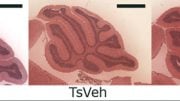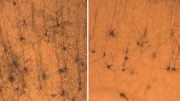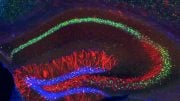
Researchers discovered that the plant compound apigenin can enhance cognitive and memory deficits typically observed in a mouse model of Down syndrome.
Mice treated with apigenin had better memory and developmental milestone scores.
The plant compound apigenin improved the cognitive and memory deficits usually seen in a mouse model of Down syndrome, according to a study by researchers at the National Institutes of Health and other institutions.
Apigenin is found in chamomile flowers, parsley, celery, peppermint, and citrus fruits. The researchers fed the compound to pregnant mice carrying fetuses with Down syndrome characteristics and then to the animals after they were born and as they matured.
The findings raise the possibility that a treatment to lessen the cognitive deficits seen in Down syndrome could one day be offered to pregnant women whose fetuses have been diagnosed with Down syndrome through prenatal testing. The study appears in the American Journal of Human Genetics.
Down syndrome is a set of symptoms resulting from an extra copy or piece of chromosome 21. The intellectual and developmental disabilities accompanying the condition are believed to result from decreased brain growth caused by increased inflammation in the fetal brain.
Apigenin is not known to have any toxic effects, and previous studies have indicated that it is an antioxidant that reduces inflammation. Unlike many compounds, it is absorbed through the placenta and the blood brain barrier, the cellular layer that prevents potentially harmful substances from entering the brain.
Compared to mice with Down symptoms whose mothers were not fed apigenin, those exposed to the compound showed improvements in tests of developmental milestones and had improvements in spatial and olfactory memory. Tests of gene activity and protein levels showed the apigenin-treated mice had less inflammation and increased blood vessel and nervous system growth.
Reference: “Apigenin as a Candidate Prenatal Treatment for Trisomy 21: Effects in Human Amniocytes and the Ts1Cje Mouse Model” by Faycal Guedj, Ashley E. Siegel, Jeroen L.A. Pennings, Fatimah Alsebaa, Lauren J. Massingham, Umadevi Tantravahi and Diana W. Bianchi, 23 October 2020, American Journal of Human Genetics.
DOI: 10.1016/j.ajhg.2020.10.001
The NIH portion of the study was conducted at the National Human Genome Research Institute (NHGRI). Additional funding was provided by the NIH’s Eunice Kennedy Shriver National Institute of Child Health and Human Development (NICHD).









Be the first to comment on "Plant Compound Apigenin Reduces Cognitive Deficits in Mouse Model of Down Syndrome"